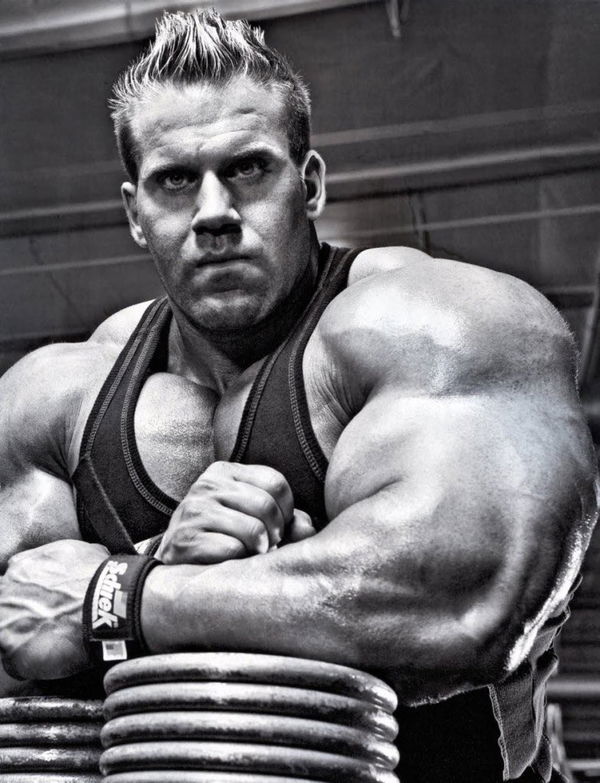“We Spend a Lot of Time Alone”: Nearly 50, Jay Cutler Discloses The Innate Quality That Supported Him to Become a Good Bodybuilder

Follow Us

4X Mr. Olympia Jay Cutler hosts a podcast on YouTube by the name of CutlerCast. Apart from that, he mostly stays away from making appearances on other podcasts. But this time, an exception was made for a friend, Nik Richie. Cutler was recently featured on the FACTZ podcast hosted by his friend. While discussing topics related to bodybuilding, such as nutrition, training, etc, Cutler also revealed one of the traits that make him different than the rest of the fitness community.
He also opened up about his favorite pass time activity. So what is the trait Cutler is talking about? Let’s find out.
Cutler explains what makes him different from other bodybuilders
ADVERTISEMENT
Article continues below this ad
Richie started the discussion by pointing out how “calm, patient, humble, and honest” Cutler is. He also talked about the fact that Cutler is very quiet and serene for the sport he is in. “The sport that you’re in…You need to be like narcissistic…like you need to be like a little loud. I feel like you come off quiet,” Richie said. While replying to this, Cutler admitted, “I was an introvert, and that’s what made me great to be a bodybuilder because we spend a lot of time alone.”
Trending

“Genetics Are Real”: Arnold Schwarzenegger’s Bodybuilder Son’s Workout Montage Leaves Fans Flabbergasted
May 12, 2024 01:00 PM EDT

Arnold Schwarzenegger’s Daughter’s Newfound Respect for Maria Shriver: “Had the Most Magical Childhood”
May 10, 2024 12:30 PM EDT

“Steroids Did a Number on His Face”: Zac Efron Faces Fierce Scrutiny From Fitness World Over His Insanely Jacked Wrestler Avatar
November 21, 2023 06:01 AM EST

“Too Damn Big”: Exuding Confidence Like No One Else, Bodybuilding Beast Jay Cutler Clarifies the Notion Behind His Tight Clothes
August 08, 2023 12:45 PM EDT

Arnold Schwarzenegger’s Son From Extramarital Affair Shares Heartfelt Mother’s Day Story
May 13, 2024 05:00 PM EDT
Get instantly notified of the hottest Bodybuilding stories via Google! Click on Follow Us and Tap the Blue Star.

Follow Us
Cutler explained further that his favorite thing to do is to stay home and avoid meeting a lot of people. “I get a little anxiety to be honest around crowds which is probably the first time I ever said this on camera.” He also disclosed that at this point, he has made himself comfortable speaking in front of an audience, but at times, a large crowd still overwhelms him.
Later in the podcast, the duo also discussed Cutler’s role models he looked up to while growing up. Cutler opened up about getting “way too big” and compared his physique to that of Arnold Schwarzenegger.
Cutler drew comparisons between him and Schwarzenegger
In the later segment of the podcast, Cutler mentioned that although Arnold was his initial inspiration, it was Van Damme and Sylvester Stallone who were his first childhood heroes. He also admitted that during his childhood, he believed these physiques were attainable, compared to that of Arnold, as he was way too big.
ADVERTISEMENT
Article continues below this ad

via Getty
401614 01: Actor and former bodybuilder Arnold Schwarzenegger (L) talks with Jay Cutler, winner of The Arnold Classic 2002, February 23, 2002 in Columbus, OH. (Photo by Matt Sullivan/Getty Images)
But after getting into the sport himself, Cutler disclosed that he got way too big than Schwarzenegger himself. “He’s [Arnold Schwarzenegger] huge right…Terminator, Commando…like I thought he was…now I look back, and I say…well look at what I did.” He added to this by saying, “I don’t necessarily think I looked better than Arnold.” He admitted talking about his generation of bodybuilders by saying, “We just got way too big, we got way too big.”
ADVERTISEMENT
Article continues below this ad
The fact that despite being bigger than Arnold, Cutler didn’t call himself better says a lot about him. There isn’t a comparison between the two anyways. They both come from two entirely different eras of bodybuilding. The standards of bodybuilding back in the 60s and 70s were way different from the current standards. Needless to say, Cutler and Schwarzenegger were among the best bodybuilders of their time.
Written by:
Edited by:
Simar Singh Wadhwa


